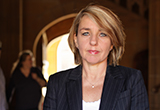 The second day of ISDMISEHC saw a lot of engagement on social media and a lot of interest from clinicians, patients, and policymakers around the world.
The second day of ISDMISEHC saw a lot of engagement on social media and a lot of interest from clinicians, patients, and policymakers around the world.
Professor Alex Barratt from The University of Sydney started the day with a keynote address on over diagnosis which highlighted some of the methodological challenges of getting accurate evidence, the dilemmas of communicating and responding to uncertainty with individual patients, and the ethical issues this topic raises. She highlighted that breast cancer incidence and treatment has increased but is not linked to any substantial reduction in breast cancer mortality rates at a population level. This is clearly a very complex issue, and Alex suggested that trying to prevent too many more new tests being adopted before we have clear evidence that they improve the health of people and using a more transparent approach to present the evidence to patients might be the way forward.
Today also resulted in some substantive discussions about teaching evidence based practice and shared decision making. Whilst many were quite demoralised about what was achievable through limited curriculum time and lack of role modelling from faculty, there was a beacon of hope from Hamburg in Germany where a sophisticated curriculum spirals through the medical undergraduate health psychology course. Impressively the student feedback is very positive and the faculty has resourced the programme well to allow small group workshops and OSCE-style assessment. The group led my Martin Haerter will be monitoring whether these skills persist beyond graduation. Watch this space!
There’s also work in progress on how we can better report trials of patient decision aids and we had oral papers and posters on mental health, youth, endocrine and renal disease, older people, chronic and musculoskeletal disease as well as measurement, implementation, health literacy, risk communication, and tools.
Perhaps the quote of the day came from Melissa Fox, one of our consumer discussants who was shocked to learn that shared decision making was not commonly included in communication skills courses saying “Isn’t that what it’s all about? What are they teaching instead?” The audience was asked about the level of consumer input into their health curricula and only a handful had consumer membership on curriculum committees. This is an important suggestion to promote change towards more patient centred care!
We finished the day with a dinner cruise on the beautiful Sydney Harbour! There’s such a wonderful exchange of ideas occurring and so much common ground and genuine commitment to improved patient care amongst the delegates. It’s inspiring and encouraging.
Lyndal Trevena is Professor of Primary Health Care and Head of the Discipline of General Practice at the University of Sydney. She is Co-Chair of the ISDM-ISEHC Conference in Sydney 19-22 July, 2015.
Competing interests: None declared.